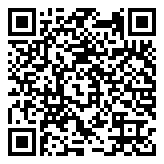

Telecommunications is an ever-evolving industry where telecom regulatory frameworks play a pivotal role in ensuring fair competition, consumer protection, and efficient use of resources. These frameworks provide the foundation for managing complex and dynamic telecom operations, influencing everything from market structure to technology deployment. Understanding the regulatory framework definition and its practical applications is crucial for navigating this rapidly changing sector. The evolution of telecom regulations reflects the growing importance of telecommunications in the global economy, and professionals need a solid understanding of telecom regulatory requirements to remain competitive. This course will provide a comprehensive exploration of telecom policy, key regulatory bodies, and the global landscape of telecom regulations, helping you understand both the challenges and opportunities in this vital sector.
This course provides a unique opportunity to gain a deep understanding of telecommunications law and telecom regulatory frameworks. With practical knowledge and insights into both national and international regulatory environments, you’ll be well-prepared to address the legal and operational challenges facing the telecom industry.
Don’t miss the opportunity to enhance your expertise in telecom regulatory requirements, telecom policy, and regulatory compliance for telecom, and stay ahead in this fast-changing and critical field.
